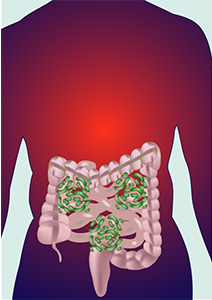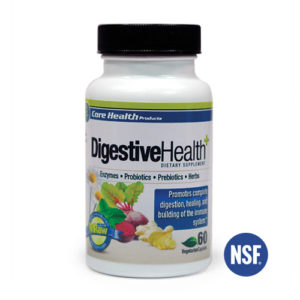American culture today has become a culture of sugar lovers.
Most people realize that sugar is unhealthy for them, however, it has become an epidemic addiction and the dominant means of energy production for people on a daily basis. Back in 2003, the USDA claims that the average American consumes 32 teaspoons of sugar per day and today most Americans consume about 150 lbs of refined sugar per year.
Are you a sugar addict?
There are healthy sources of sugar like organic fruits and organic honey that should be consumed in moderation daily. They provide the body with vital nutrients like vitamins, minerals, enzymes, fiber, antioxidants, and thousands of phytochemicals the body utilizes to repair, rebuild, and nourish the body. These foods and their nutrient value prevent diseases like cancer, autoimmune disorders, neurological disorders, and slow the aging process.
The focus of this article will be about unhealthy forms of sugar, especially, fructose in the form of high fructose corn syrup and sucrose (table sugar) and its relation to disease. We will also see the relationship between sugar and its effects on the intestinal tract, blood sugar levels, and inflammation that directly put you at a higher risk for certain neurological disorders. Lastly, we will explore the relationship between sugar and heart disease.
The most common forms of refined sugar we consume today are sucrose (table sugar), lactose (milk sugar), processed/nonorganic filtered honey, brown sugar, fructose, high fructose corn syrup, processed molasses, corn sweeteners, maltose (found in beer), and fruit juice concentrates. We could write a book discussing all these but lets focus on fructose in the form of high fructose corn syrup and table sugar (sucrose) and its overall effect on the body that lead to diseases.
Fructose is naturally found in fruit which may be a surprise to some!
The good news about fructose found in fruit is that it is has the lowest glycemic index rating of all natural sugars because it metabolizes mostly in the liver and has no immediate effect on blood sugar levels. Unlike natural fruit, high fructose corn syrup does not actually come from fruit; it is actually a sweetener from corn syrup. The finished product is half fructose and half glucose and the latter is what raises blood sugar levels.
When you consume table sugar (sucrose) or high fructose corn syrup it has an immediate effect on blood sugar and insulin levels in the body. The average American consumes about 80 grams of some form of artificial fructose, especially, high fructose corn syrup daily. This high intake of unnatural fructose long-term leads to impaired glucose tolerance; insulin resistance; high blood fats; hypertension; burdens the liver that impairs it to function in other ways; decreases energy and produces more uric acid which may lead to high blood pressure, gout, and kidney stones; does not trigger the production of insulin and leptin (two hormones that regulate metabolism that could lead to obesity), etc.
Consuming these refined sugars create a higher risk of certain cancers like oral cavity, stomach, colorectal, intestinal, breast, thyroid, and cancer of the respiratory tract. Sugar also inhibits the immune system; leads to food allergies that can increase your risk of colitis, asthma, behavioral disorders, joint pain and deterioration, and muscle pain; and it demineralizes the body making you deficient in certain types of minerals. These sugars will feed candida and other fungus’ along with other pathological organisms. They increase cross-linked proteins that create wrinkles on your skin because it breaks down collagen and elastin.
As you can see, consuming these types of sugar have a plethora of disease causing effects and accelerate the aging process, moreover, they should be avoided at all costs. Be mindful of the things you buy at the store and read the ingredients on the packages, you will be amazed at how many food and drink products have different forms of refined fructose/sugar in them. Do not be fooled by any products labeled “natural” because it is a marketing gimmick and makes the consumer think they are getting a better product but the ingredients is what matters most, so just make sure you read them.
Inflammation and gut imbalances all result from sugar consumption!
Unnatural fructose like high fructose corn syrup abnormally ferments in the intestines which increase the production of intestinal gases like methane, hydrogen, carbon dioxide, and hydrogen sulfide. The production of these toxic gases in the gut can cause bloating, discomfort, or abdominal pain. In particular, methane gas when active in higher amounts in the intestinal tract impedes digestion causing abdominal pain and constipation. In 2013, an issue of the American Journal of Clinical Nutrition shows us that consuming high fructose corn syrup can exit the intestines and enter the general circulation of the blood and causes liver damage. As you can see, high fructose corn syrup or any refined sugar can effect the gut and liver to the point of causing major damage to each organ.
Besides abnormal gut fermentation and liver damage, consuming these refined sugars cause a spike to our blood sugar levels and increases systemic inflammation in the body and all this begins in the gut. Some of these symptoms have already been stated in part one of this article but lets see how it relates to neurological disorders like depression, alzheimer’s, multiple sclerosis, Parkinson’s, etc.
Inflammation is easily detectable when we scratch ourselves or break a bone because of the amount of swelling, redness, and pain that occurs when things like this happen. We actually have pain receptors in the body that send signals to our brain that tells the brain that something serious has gone wrong and needs immediate repair and regeneration, this is the inflammatory process. However, inflammation in the brain is something that is not detectable by the naked eye. Brain cells do not have pain receptors, so we cannot feel inflammation taking place in the brain, but there are other inflammatory markers we can use to determine the amount of inflammation taking place in the brain. As a result, this may be able to help predict our chances of cognitive decline or any other neurological disorder we may have a chance of getting.
These inflammatory markers are called cytokines, they are small proteins released by our cells that affect the behavior of other cells and take a primitive role in the inflammatory process. A few of them are C-reactive protein, interleukin six (IL-6) and tumor necrosis factor alpha (TNF-a). We have the ability now to image the brain to see these inflammatory chemicals/markers in action. They are all indicators of how much inflammation is going on and its effect on cognitive decline. Elevated blood levels of these inflammatory chemicals are directly linked to high blood sugar as well.
 High blood sugar levels from consuming refined sugars trigger a reaction called, “glycation.” This biological process increases inflammation by binding sugar molecules to proteins and certain fats, resulting in abnormal cells that do not function well. These sugar protein molecules are technically called, “advanced glycation end products” (AGE’s). Once these AGE’s enter the general circulation through the gut wall, the body does not recognize it as normal, so it sets off inflammatory reactions. Particularly in the brain, these sugar proteins combine with brain proteins that produce lethal new structures that contribute to the degeneration of the brain and impair proper neurological function. Some scientists today are calling disorders like Alzheimer’s type 3 diabetes. This shows the connection between gut bacteria, chronic high blood sugar levels, and systemic inflammation
High blood sugar levels from consuming refined sugars trigger a reaction called, “glycation.” This biological process increases inflammation by binding sugar molecules to proteins and certain fats, resulting in abnormal cells that do not function well. These sugar protein molecules are technically called, “advanced glycation end products” (AGE’s). Once these AGE’s enter the general circulation through the gut wall, the body does not recognize it as normal, so it sets off inflammatory reactions. Particularly in the brain, these sugar proteins combine with brain proteins that produce lethal new structures that contribute to the degeneration of the brain and impair proper neurological function. Some scientists today are calling disorders like Alzheimer’s type 3 diabetes. This shows the connection between gut bacteria, chronic high blood sugar levels, and systemic inflammation
The consumption of refined sugars lead to an imbalanced gut called dysbiosis, increase blood sugar levels, and high amounts of inflammatory markers like AGE’s in the blood that are biochemical markers related to all neurological pathologies. For those who have diabetes or are hyperglycemic, the chances of developing these neurological disorders are greater, so regulating your blood sugar and reducing the amount of AGE’s in the blood is imperative and it starts by abstaining from refined sugars and addressing the gut bacteria.
Learn more about our Digestive Health and how it can help with inflammation…
Inflammation leaves its mark!
There is one more inflammatory marker we will discuss as it relates to sugar consumption and disease. This inflammatory marker is called “LPS” (lipopolysaccharide) which is a combination of lipids (fat) and sugar and is a major component of the outer membrane of certain gut bacteria. Besides helping sustain the structural integrity of this bacteria, it also protects this bacteria from being digested from bile salts excreted by the gallbladder during the digestion of our foods. Overall, it helps sustain the integrity of the gut lining but the consumption of refined sugar compromises this integrity.
We do know that if LPS enters the general circulation then it induces a violent inflammatory response. It has been shown in recent studies that those who have neurological disorders like Alzheimer’s disease, multiple sclerosis, inflammatory bowel disorders, diabetes, Parkinson’s disease, amyotrophic lateral sclerosis (ALS), rheumatoid arthritis, lupus, depression, and even autism have high levels of LPS in their bloodstream.
High levels of LPS in the bloodstream is also a marker of a “leaky gut.”  The consumption of all forms of refined sugars leads to gut permeability and weakens the gut lining and this is when LPS enters the bloodstream where it is not supposed to be and causes systemic inflammatory havoc on the body. For example, LPS in the blood can be a contributor to increased levels of beta-amyloid in the brain which is high in those who have Alzheimer’s disease. High levels of LPS may cause memory problems as well. Those with ALS, also known as Lou Gehrig’s disease, have high levels of LPS in the plasma and the higher the level, the greater the severity of this illness. Dr. Christopher Forsyth of Rush University Medical Center in Chicago has explored LPS and its relation to gut permeability that is linked to Parkinson’s disease and has found a direct correlation. His patients with Parkinson’s disease in his study shows higher amounts of LPS in the bloodstream than healthier controls.
The consumption of all forms of refined sugars leads to gut permeability and weakens the gut lining and this is when LPS enters the bloodstream where it is not supposed to be and causes systemic inflammatory havoc on the body. For example, LPS in the blood can be a contributor to increased levels of beta-amyloid in the brain which is high in those who have Alzheimer’s disease. High levels of LPS may cause memory problems as well. Those with ALS, also known as Lou Gehrig’s disease, have high levels of LPS in the plasma and the higher the level, the greater the severity of this illness. Dr. Christopher Forsyth of Rush University Medical Center in Chicago has explored LPS and its relation to gut permeability that is linked to Parkinson’s disease and has found a direct correlation. His patients with Parkinson’s disease in his study shows higher amounts of LPS in the bloodstream than healthier controls.
What you may not know is that when your gut bacteria is flourishing and healthy then it helps to produce vitamins, enzymes, and neurotransmitters like serotonin that are all vital to minimize systemic inflammation, increase nutrient absorption, and provide the brain with vital chemicals to keep it functioning well. One major way we are destroying these vital bacterial organisms is through our massive consumption of refined sugars. A healthy gut flora leads to a reduction of systemic inflammation which leads to a healthy brain!
The relationship between Sugar and Heart Disease
When you consume refined sugars like high fructose corn syrup or table sugar, it metabolizes quickly and moves into the bloodstream via the liver and it almost always turns into saturated fat. How is this so?
When these sugars enter the bloodstream and increase blood sugar levels, the excess glucose stimulates the production of fatty acids, especially triglycerides. As a result, your triglycerides become elevated. Unless these fats from sugars are burned off from exercise, they will be deposited in our cells and organs that lead to cardiovascular conditions like atherosclerosis. Exercising to burn off these sugar derived fats does not give us the freedom to consume these types of sugars carelessly because the health risks are too high. The body has the ability to insert double bonded molecules into these single bonded saturated fat molecules making them unsaturated, but these unsaturated fats usually become oxidized and can damage your arteries if we do not consume foods rich in antioxidants. The body does all it can metabolically to eliminate any foreign substance that it does not recognize as a real food to protect itself. Flooding the body daily with these foreign sugars taxes the body and will lead to diseases like cardiovascular disease.
Consuming refined sugars decrease vitamin levels that lead to the body’s inability to metabolize fat and cholesterol, convert cholesterol to bile acids for removal via the stool, or burn excess fat. Besides increasing triglyceride levels, you will also increase cholesterol levels, slow metabolism, and increase weight gain which may factor into heart disease. As a side note, high cholesterol levels is not a good bio-marker for heart disease. Please refer to my article titled, “Debunking the Cholesterol Theory,” that explains why you should not worry about cholesterol levels and heart disease. However, the slowing of metabolism and increasing weight gain is the main concern because excess weight gain only increases your chances of heart disease based on what has been explained in the last two paragraphs.
Inflammation is a part of this process as well. The body sends inflammatory proteins like C-reactive proteins to repair the damage caused by the pro-inflammatory sugars we consume. Inflammation happens immediately after consuming refined sugars and remains chronic for those who consume these sugars daily. Besides the inflammation caused by sugar, the lipids (fat) found in our cell membranes become oxidized, a process called, “lipid peroxidation” and when you mix these two together, you get heart disease in its many forms.
The common thread throughout this article on refined sugar consumption and its effects on disease is gut imbalance (dysbiosis), high blood sugar and inflammation. These three are at the forefront of research today because studies are showing their synergistic relationship when it comes to diseases of the brain, cancer, auto immune disorders, degenerative diseases, cardiovascular disease, diabetes, obesity and more. You have read about it some in this article and the hope is that you realize that you need to eliminate these sugars out of your daily intake of food and drink. Refined sugars are silent killers and they should be eliminated out of all of our foods and drinks, however, the FDA does not seem to make this a priority. It is up to the American people to demand that these sugars be eliminated out of our food and drink supplies and an intentional will of abstaining from them as much as possible.
“I have dealt with IBS since I was little and I started taking Digestive Health about 8 months ago. I noticed a huge difference the first day I took it. I am grateful for this product!” – Raven S.
Learn More About Digestive Health
Besides refraining from these sugars to help reduce improper gut balance, high blood sugar and inflammation, it is recommended that you repopulate the gut with healthy bacteria. Our Digestive Health will do that for you.  There are 15 strains of probiotics and prebiotics that allow for proliferation in the gut over time. We often recommend our “Digestive Blitz” protocol to get you started for the first month to help cleanse your intestinal tract. You would consume 2 capsules, 3-4 times a day (on an empty stomach) depending on the severity of your gut imbalance along with 1 capsule at each meal.
There are 15 strains of probiotics and prebiotics that allow for proliferation in the gut over time. We often recommend our “Digestive Blitz” protocol to get you started for the first month to help cleanse your intestinal tract. You would consume 2 capsules, 3-4 times a day (on an empty stomach) depending on the severity of your gut imbalance along with 1 capsule at each meal.
Consuming good fermented foods are good as well, so foods like kefir, organic yogurt (without any added flavorings, colors, or sugar), sauerkraut, kimchi, pickled fruits and veggies, kombucha, etc. will all be factors contributing to a healthier microbiota and reduce your risk of many diseases.
To Health and Longevity!!
John Nardozzi, Core Health Blogger
Sources:
Erasmus, UDO. Fats That Heal, Fats That Kill. Burnaby BC, Canada. Alive Books. 1993.
Fuhrman, Joel, MD. Eat to Live. New York, NY. Little Brown and Company. 2003.
Perlmutter, David, MD. The Brain Maker: The Power of Gut Microbes to Heal and Protect Your Brain-For LIfe. New York, NY. Little Brown and Company. 2015.
L.S. Schneider et al., “Lack of Evidence for the Efficacy of Memantine in Mild Alzheimer Disease,” Arch. Neurol. 68, no. 9 (August 2011): 991-98, doi: 10.1001/ archneurol.2011.69, Epub April 11, 2011.
Kavanagh et al., “Dietary Fructose Induces Endotoxemia and Hepatic Injury in Calorically Controlled Primates,” Am. J. Clin. Nutr. 98, no. 2 (August 2013): 349-57, doi: 10.3945/ajcn.112.057331.
Hill et al., “The Gastrointestinal Tract Microbiome and Potential Link to Alzheimer’s Disease, “ Front. Neurol. 5 (April 2, 2014): 43, doi: 10.3389/fneur.2014.00043, eCollection2014.
J.W. Lee et al., “Neuro-Inflammation Induced by Lipopolysaccharide Causes Cognitive Impairment through Enhancement of Beta-Amyloid Generation,” J. Neuro-inflamm. 5 (August 29, 2008): 37, doi: 10.1186/1742-2094-5-37.
Zhang et al., “Circulating Endotoxin and Systemic Inflammation Activation in Sporadic Amyotrophic Lateral Sclerosis (sALS),” J. Neuroimmunol. 206, no. 1-2 (January 3, 2009): 121-24, doi: 10.1016/j.jneuroim.2008.09.017, Epub November 14, 2008.
C.B. Forsyth et al., “Increased Intestinal Permeability Correlates with Sigmoid Mucosa Alpha-Synuclein Staining and Endotoxin Exposure Markers in Early Parkinson’s Disease,” PLoS One 6, no. 12 (2011): e28032, doi: 10.1371/journal.pone.0028032, Epub 2011 December 1, 2011.

